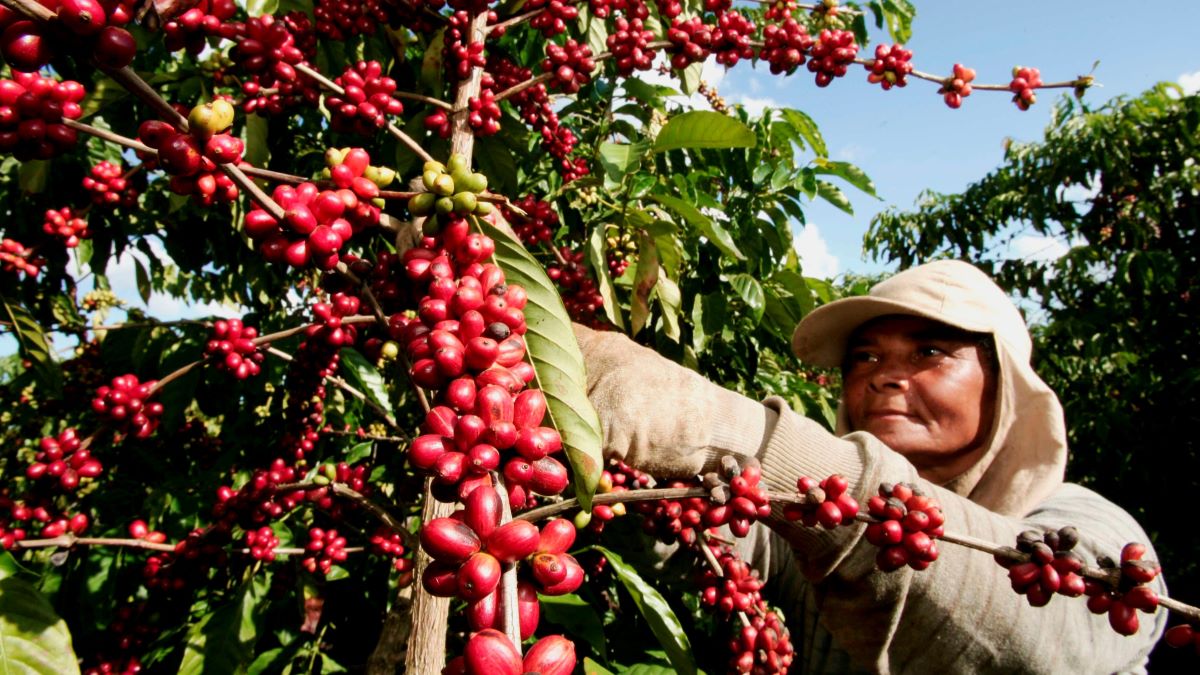Governments urged to promote businesses that practice fair trade to help tackle inequality, end poverty and save our planet.
Many coffee and cocoa farmers earn a pittance even as these products generate huge profits in global markets.
For instance, coffee farmers earn only 0.4% of the price consumers pay for a latte or cappuccino.
The situation for cocoa farmers isn’t much better. In the 1980s, they got about 18% of the value of a chocolate bar. Today their share is less than 6%.
These farmers stand little chance of improving their lot in the mainstream profit-hungry business world controlled by powerful multinationals.
Their hope lies in alternative business models such as fair trade enterprises, which put people and the planet over profits, experts said at an event organized by UNCTAD and the Fair Trade Advocacy Office at the Palais des Nations in Geneva on 22 January.
“It contributes to sustainable development by offering better trading conditions to, and securing the rights of, marginalized producers and workers, especially in developing countries,” he said.
Supporting small farmers and suppliers
UNCTAD enhances the productive capacity and competitiveness of small local suppliers to create fairer and more sustainable upward linkages between them and large multinationals, said the organization’s deputy head, Isabelle Durant.
In Brazil, for instance, UNCTAD’s business linkages programme has upgraded the capacity of 300 micro, small and medium enterprises in the manufacturing sector and linked them to 20 multinationals.
UNCTAD also helps small businesses comply with quality standards’ certification, which often comes at a high cost.
In Vanuatu, for example, annual audit costs for organic certification can range between US$2,000 and $10,000 – a steep fee in a country where the monthly minimum wage is $290.
Sustainability certification can help farmers get a better price for their produce.
Small businesses also struggle to navigate the existing multiple sustainability standards, as consumers increasingly opt for products that claim to be sustainable.
One way a product can claim to be "sustainable" is by carrying eco-labels that confirm that products meet Voluntary Sustainability Standards (VSS).
UNCTAD helps small farmers and businesses in developing countries to comply with the standards by building their capacity to use VSS as a tool to access growing "green" markets.
It also promotes partnerships, through the United Nations Forum on Sustainability Standards, to improve coherence between the plethora of sustainability standards and make them more accessible.
Tackling inequality, poverty
“Fair trade enterprise models help tackle inequality, end poverty and save our planet as they are designed to prioritize these goals,” said Bob Doherty, a professor at the University of York in the United Kingdom.
A report entitled “Creating the New Economy” launched during the event challenges governments, investors and all companies to help spread fair trade enterprise models far and wide to make global value chains more equitable, inclusive and sustainable.
Growing global movement
The fair trade movement comprises over 2.5 million producers and workers from 70 countries, over 500 specialized importers, 4,000 world shops and more than 100,000 volunteers – figures that are growing, according to Mr. Corbalán.
Global sales of fair trade certified goods climbed 15% in 2018 to reach €9.8 billion ($10.9 billion), according to Fairtrade International's annual report 2018-2019. The profits put an additional €177 million ($196 million) in the pockets of 1.7 million farmers and workers.
Mr. Corbalán cited work done with governments to ensure equitable distribution of benefits in value chains in countries such as Kenya, where efforts to promote living wages for flower workers are bearing fruit.
The fair trade movement has also helped improve incomes of cocoa farmers in Cote d’Ivoire and Ghana, the working conditions of Haitian migrant workers in banana plantations in the Dominican Republic and tackled child labour in the sugar sector in Belize.
“While fair trade has gained momentum, to truly rewrite the rules of trade, the movement must continue to innovate,” Ms. Durant said.

